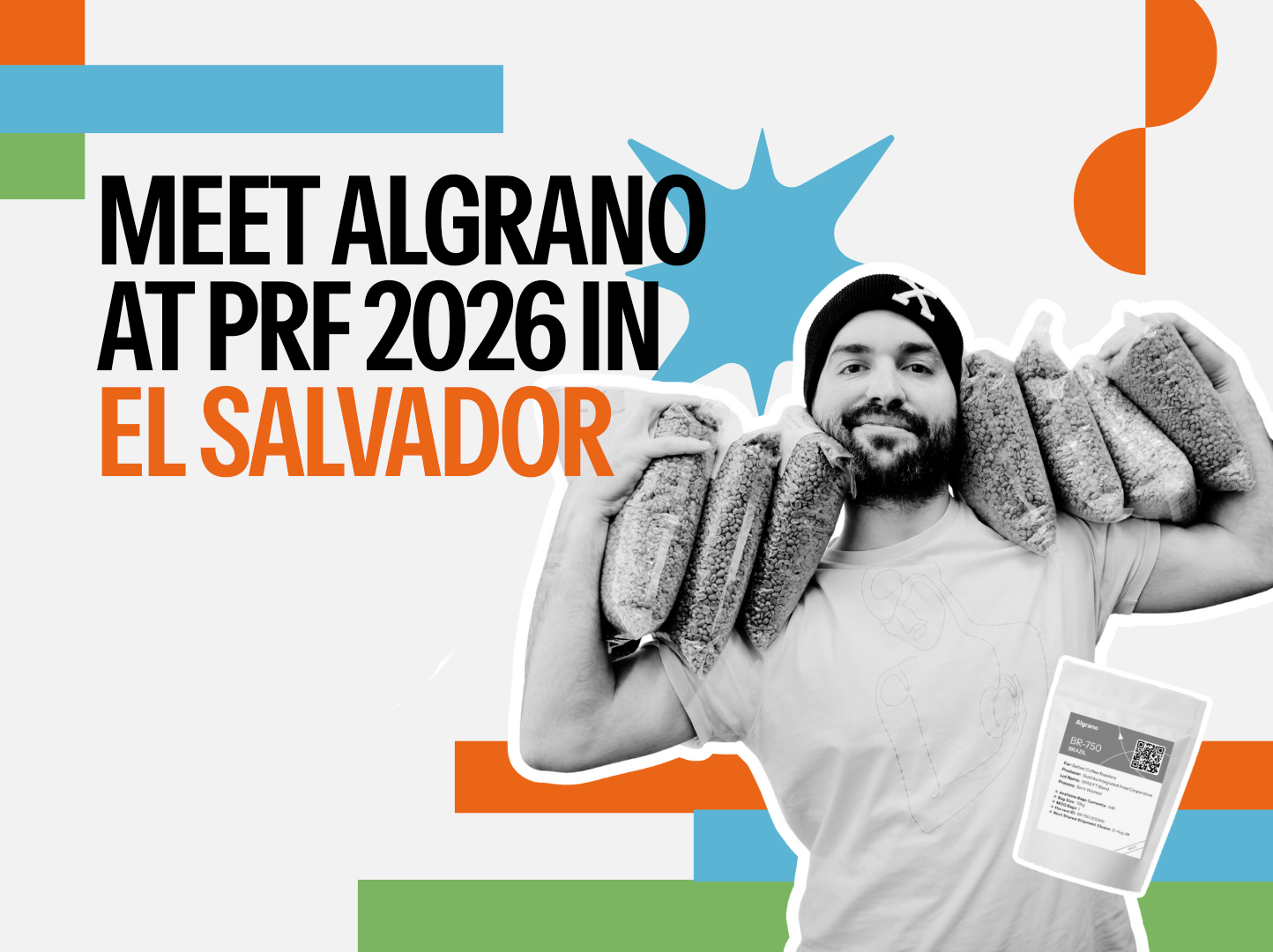


Connecting Producers and Roasters Online Since 2015

Algrano was founded by three friends Gilles, Christian and Raphael after spending time together in Brazil. They realized that behind the request from one coffee producer to ‘help me sell my coffee’ there was a much deeper need to address the information asymmetry and power imbalances in the industry, and the internet provided a chance to do things better.



%201.webp)


Algrano’s vision is to create a prosperous and connected global coffee community.
We create change with technology to enable independent producers and roasters to thrive.


For independent
entrepreneurs
You can still buy coffee from Alessandro Hervaz, who was one of the first to list his coffee with us. Honey Farms and APAS have made over 180 sales directly to 58 roasters in Europe and the USA.

“As a small producer, when I manage to sell our specialty coffees internationally, I get an average 50% price increase compared to the domestic market, and up to 100%. That makes a big difference to me.”
%201.webp)
News & Resources
.png)
AFCA 2026 Addis Ababa: Meet roasters and join cuppings and panel!
Algrano and the African Fine Coffees Association are joining forces. We are bringing a delegation of more than 20—including buyers from the US and Europe—to Ethiopia. Join our panel on "Why buying from Africa feels hard" and attend our Open Cupping.
.png)
Green coffee exempt from US tariffs
The US coffee tariff is gone, but the specific 40% duty on Brazilian coffee hasn't dropped. Here is the breakdown of the conflicting orders and what you need to know before approving your next shipment.
